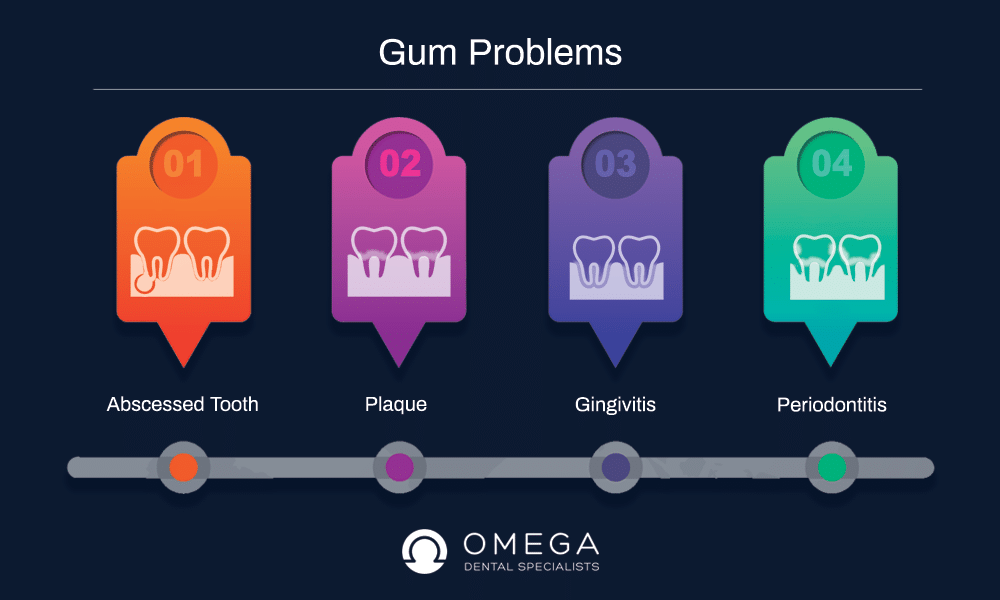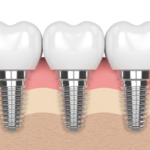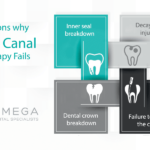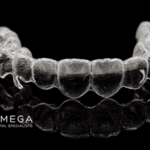If You Have Gum Disease, Can You Get Implants?

If you have gum disease can you get implants? Dental implants make it possible for you to improve your smile, but it’s important to have healthy gums for this procedure. If you suffer from gum disease, you should talk to dental implant specialists in Houston about whether or not you’re considered a good candidate. In many cases, having gum disease treated can help you become a suitable candidate for dental implants.
Table of Contents
If You Have Gum Disease, Can You Get Implants?
Periodontal disease, also known as gum disease, is a serious condition that affects your gums. This disease can result in tooth loss when it isn’t treated. If you have this disease, you might be interested in dental implants for any teeth that you’re already missing. Can you get implants with gum disease? You might be able to as long as you get proper care for gum disease first. You’ll need to have healthy gums to ensure healing and lower the risk of complications from dental implant procedures.
Dental implants after gum disease provide important benefits. These implants can replace missing teeth that have fallen out or been removed due to gum disease. With replacement teeth, you’ll have a healthy and full smile once again. This can help you feel confident when you’re around other people. With tooth loss, you might avoid talking to others or smiling so that your missing teeth won’t show. Dental implants can restore your self-confidence along with your smile.
Are you at risk of getting gum disease?
While your risk can go up as you get older, certain risk factors can increase it. These risk factors for gum disease include the following:
- Poor oral hygiene habits: Not brushing enough, brushing improperly or not flossing regularly
- Lack of routine dental cleanings: These cleanings remove bacteria from your gums and allow dentists to check for signs of gum disease
- Medical conditions: Diabetes and other conditions can impact your immune system, making it easier for your gums to be infected
- Smoking: Smoking increases your risk of gum problems and leads to difficulty treating gum disease
- Medications: Medications that lead to reduced saliva flow can raise your risk of gum disease
- Family history: Higher risk of gum disease if it runs in your family
Replacing Teeth After Gum Recession
Periodontal disease is one of the top causes of tooth loss. When you have this disease, your gums become inflamed, resulting in a reddish appearance. Your gums might also bleed easily when you brush your teeth. This inflammation, which is known as gingivitis, needs to be treated. Otherwise, this inflammation can turn into periodontal disease. With periodontal disease, bacteria attack the healthy tissue in your gums and jawbone. This can lead to loosened teeth over time without treatment, as well as infections that can spread to other areas.
Gum recession is common with periodontal disease. When your gums recede, your teeth become looser and can end up falling out. If you have treatment done for gum disease, this helps restore healthy gum tissue. Keep in mind that treatment should be done promptly to prevent this disease from becoming more advanced. If you have any of the following signs of gum disease, you should see your dentist in Houston for an evaluation and treatment:
- Gums with a reddish appearance
- Swelling in your gums
- Pain or discomfort while chewing food
- Gums that bleed easily, such as when you brush your teeth or floss between your teeth
- Spaces forming between teeth, which can happen as teeth shift due to bone loss during gum disease
- Bad breath that doesn’t improve after brushing or using mouthwash
- Teeth that feel loose
- Bad taste that isn’t caused by food
Can You Get Implants with Gum Recession?
Getting implants with receding gums is possible in some cases. When you have receding gums from periodontal disease, this exposes more of your tooth root. In order to have dental implants stay in place, you need to have enough healthy gum tissue and jawbone tissue. Without this tissue, your dental implants could fail to remain fixed in place. Instead, they could end up falling out or being loose and causing discomfort. If this happens, you would need to have healthy tissue restored and have the implant procedure done all over again.
Full Mouth Dental implant specialists in Houston can help you become a good candidate for tooth implants with gum disease. After you have been treated for periodontal disease, you can ask about having grafts done to replace gum and bone tissue. Gum grafts are sometimes done to replace gum tissue that has been lost from gum recession. This helps restore enough healthy gum tissue around missing teeth, so that you can get dental implants.
If you have lost jawbone tissue due to gum disease, bone grafts can restore this tissue. You’ll need to have enough healthy jawbone tissue in order to hold your dental implants in place. Bone grafts offer a way to increase the amount of jawbone tissue you have, so that you can have dental implants placed inside your jawbone.
Dental Implants and Periodontal Disease
It’s important to understand more about gum disease treatment if you’re considering getting dental implants. Since you’ll need to have treatment done before getting implants, knowing more about this process can help you understand what to expect. When you see your Houston dentist for gum disease, the treatment you’ll need will depend on how advanced your condition is. You might need to have a simple procedure done to correct gum disease, or you might require more complex treatment for advanced disease.
Some of the gum disease treatment options you might have include the following:
- Regenerative surgery: You might need this surgical procedure done if you have lost bone tissue due to severe gum disease
- Scaling and root planing: Scaling and root planing involve a deep cleaning to remove bacteria and plaque that have built up under the gumline
- Pocket reduction surgery: Pockets can form around your teeth with gum disease, and this procedure helps correct this
Getting Implants After Gum Disease
You might be concerned about gum disease and implants if you only have minor inflammation so far or if you don’t have gum problems at the moment. You should know that having dental implants won’t lead to a higher risk of gum disease. However, you’ll need to have treatment done if you have gum inflammation or disease before you’re able to get implants.
Once gum disease is under control, you can benefit from having dental implants. These implants can be used to replace missing or loose teeth from gum disease. Getting these implants gives you a long-term way to restore a healthy smile, especially if you keep up with routine dental cleanings and practice good dental habits at home.
Dentures After Gum Disease
If you have gum disease can you get dentures? Dentures after gum disease can replace missing teeth. However, there are drawbacks to getting dentures instead of dental implants. Advanced gum disease can wear away your jawbone, making it harder to keep dentures in place on a regular basis. Dentures might also become more uncomfortable over time when you have gum disease.
If you haven’t had treatment for periodontal disease, wearing dentures could cause additional problems with your gums. You might experience gum irritation, or inflammation could get worse in the long run. Keep in mind that there are other options for replacing teeth after gum disease that might be more suitable for you.
Dental implants in Houston provide an alternative to dentures for those who have lost teeth from gum disease. With dental implants, you don’t have to worry about dealing with discomfort. Dental implants are also designed to stay in place more securely compared to dentures, which you need to take out from time to time. If you have lost jawbone due to gum disease, you might be able to have bone grafts done to correct this. If you have several missing teeth, dental implant specialists can determine if implants are right for you.
All on 4 Dental Implants After Gum Disease
If all or most of your teeth are loose or missing from gum disease, you might want to consider All on 4 dental implants. These implants provide a more convenient way to have multiple teeth replaced at once instead of having many separate dental implants done. The risks associated with All on 4 implants are minimal. These risks, such as infections or bleeding, can happen with any dental procedure. Making sure your gums are in good condition helps keep these risks to a minimum.
The cost of All on 4 dental implants can differ depending on certain factors, such as whether or not you need gum or bone grafts. Keep in mind that you’ll need to factor in the cost of treatment for gum disease for an overall total. If you’re worried about the full mouth dental implants cost, Omega Dental Specialists offers financing options that can help make these more affordable for you.
[ See:Full Mouth dental implants cost in Houston, Texas]
Affordable Gum Disease & Dental Implants
If you’re looking for affordable dental implants in Houston, please contact Omega Dental Specialists for a free consultation. We can evaluate your gums and determine if you are a good candidate for dental implants. Keep in mind that we offer periodontal disease services to improve your gums before getting dental implants. We also provide cosmetic dentistry services in Midtown Houston.





